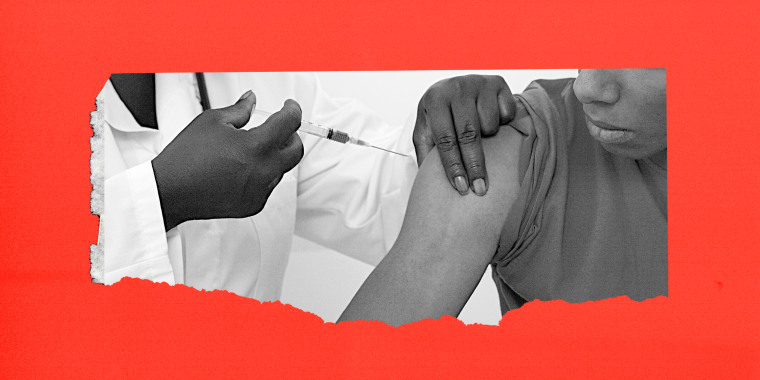Ever wonder why your arm is so sore after a flu shot?
While getting influenza vaccine is a relatively painless experience for most people, some do find that the area where the needle was injected tends to be pretty sore for a day or two after the shot.
Aside from being mildly annoying, it's really nothing to worry about. But to satisfy curious minds, TODAY asked the experts why this happens.
"The quick and simple answer is we're putting a needle into the muscle of the arm and injecting fluid," said Marc Schechter, D.O., chief of family medicine at ProHEALTH. "That in itself can cause a little discomfort. The longer explanation revolves around why we're giving you the vaccine in the first place. The body takes a look at what's in (the vaccine) and starts developing an immune response. Your body is developing antibodies to whatever infection you're trying to prevent — in this case, influenza. That causes some swelling, redness, a little discomfort."
In other words, it's just inflammation. One way to look at it is that the soreness is a sign that the vaccine is doing its job. But if you're among the lucky ones who don't experience soreness, that doesn't mean the flu shot isn't working. Different people have different reactions to the vaccine. (Different vaccines can also cause different reactions. For example, Schechter noted that the Tdap vaccine is known to be one of the more uncomfortable shots, likely because it's providing vaccines for three separate diseases: tetanus, diphtheria and whooping cough.)
There are ways to minimize flu shot discomfort, though.
Relax
Dr. Jake Deutsch, M.D., clinical director of Cure Urgent Care, recommends tapping the arm for about 30 seconds before getting a flu shot to desensitize the area and make the injection less painful.
Doctors often tap or massage the arm to distract the patient as well. Relaxing beforehand will make the shot more comfortable.
Take pain relievers
If you typically experience lots of soreness after flu shots, it's fine to take a dose of acetaminophen or ibuprofen one or two hours before the shot, Schechter said.
Or, if you find you're feeling really sore the next day, take it then.
Try a cold compress — or a hot one
Applying a cold compress to the area of the injection can help soothe discomfort after the shot.
A heating pad, or a dip in the Jacuzzi, may also work to ease muscle tension.
Drink lots of water
"Any degree of dehydration is going to exacerbate that muscle tension," Deutsch said.
Doctors stress that any soreness from the flu shot should be minimal and last only a day or two.
Overall, the flu shot shouldn't hurt all that much — and getting the flu will always be worse than a little bit of soreness.
Experts say that it's especially important to get the flu vaccine this year, during the COVID-19 pandemic, to help rule out the influenza as a possibility in the event a patient gets sick, and also to keep hospitals clear in case coronavirus cases spike.
"This season more than ever, eliminating all possibilities for illness is that much more important," Deutsch said.

